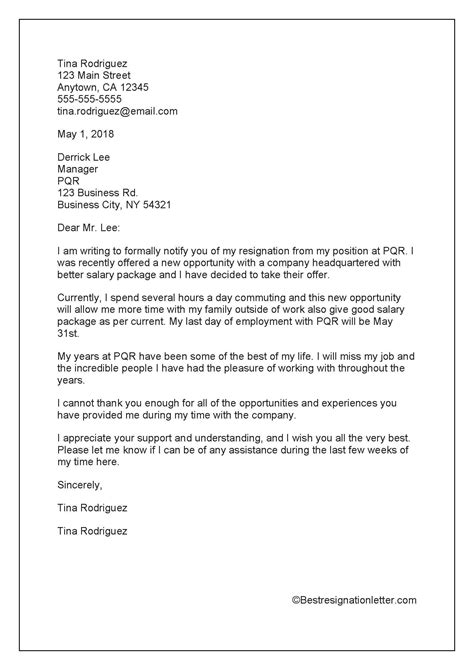Exiting A Contract Job: Resignation Guide & Common Questions

Leaving a contract job can be a significant decision, and it’s important to navigate the process properly. Whether you have found a new opportunity or simply wish to move on from your current contract, this guide will provide you with a step-by-step resignation process and answer common questions that may arise.
1. Evaluate Your Contract
Before resigning from your contract job, carefully review the terms of your contract. Take note of any notice period, specific termination procedures, or penalties that may apply. Understanding your contractual obligations will help you plan your resignation effectively.
2. Notify Your Supervisor
Once you have made the decision to leave your contract job, it is essential to inform your supervisor or manager. Schedule a meeting to discuss your resignation and provide them with a formal resignation letter. Be professional and express gratitude for the opportunity to work with the company.
Example:
Dear [Supervisor’s Name],
I am writing to inform you that I have made the decision to resign from my position as [Your Job Title] at [Company Name]. I have thoroughly enjoyed my time working with the team and I am grateful for the opportunities I have had here.
According to the terms of my contract, I understand that I am required to provide [notice period] notice. My last working day will be [Date]. I am committed to ensuring a smooth transition during this period and will assist in any way necessary.
Thank you for your understanding and support. I appreciate your guidance throughout my time at [Company Name].
Sincerely,
[Your Name]
3. Prepare for Transition
Prior to your departure, take the time to organize your work and ensure a seamless transition for your replacement. Document any ongoing projects, update relevant files, and create a comprehensive handover document for your successor. This will help maintain productivity and minimize disruption.
4. Communicate with Colleagues
Inform your colleagues about your resignation and impending departure. Be professional and positive in your communication, expressing gratitude for their support and collaboration. Offer assistance in wrapping up any shared projects or tasks to ensure a smooth handover.
5. Tie Up Loose Ends
Before leaving your contract job, take care of any outstanding tasks or responsibilities. Clear your desk, return any company property, and settle any outstanding expenses or invoices. Leave on a positive note by completing your work to the best of your ability.
6. Exit Interview
If your contract job offers an exit interview, take advantage of this opportunity to provide feedback and share your thoughts on your experience with the company. Offer constructive criticism and highlight positive aspects of your time with the organization.
7. Network and Maintain Relationships
As you exit your contract job, it’s important to stay connected with your colleagues and industry contacts. Connect on professional networking platforms, such as LinkedIn, and consider reaching out to individuals you have worked closely with. Maintaining relationships can lead to future opportunities and references.
8. Update Your Resume and Portfolio
Now that you have completed your contract job, update your resume and portfolio to reflect your experience. Highlight the skills and achievements gained during your time with the company. This will ensure that you are ready to pursue new opportunities.
9. Plan Your Next Move
Take the time to evaluate your career goals and determine your next steps. Research potential job opportunities, consider further education or training, or explore freelancing options. Creating a plan will help you stay focused and motivated as you move forward.
10. Reflect and Learn
Before diving into your next endeavor, take some time to reflect on your contract job experience. Identify the lessons learned, both professionally and personally. Use these insights to grow and develop in your future endeavors.
Conclusion
Exiting a contract job requires careful planning and consideration. By following these steps, you can resign professionally and maintain positive relationships with your colleagues. Remember to stay focused on your career goals and use this experience as a stepping stone to your next opportunity.
Frequently Asked Questions
-
How much notice should I give when resigning from a contract job?
The notice period for resigning from a contract job may vary depending on the terms outlined in your contract. Review your contract to determine the required notice period and ensure you provide the appropriate amount of time.
-
Can I terminate a contract job before the agreed-upon end date?
In most cases, terminating a contract job before the agreed-upon end date may result in penalties or legal consequences. Review your contract to understand the implications of early termination and consider discussing your situation with your supervisor or legal advisor.
-
How do I handle the transition period when resigning from a contract job?
To handle the transition period effectively, create a comprehensive handover document that outlines your ongoing projects, tasks, and responsibilities. Communicate with your replacement and colleagues to ensure a smooth transfer of knowledge and minimize disruption.
-
Should I provide feedback during an exit interview?
Participating in an exit interview provides an opportunity to provide constructive feedback and share your thoughts on your experience with the company. Be honest and professional in your feedback, highlighting both positive aspects and areas for improvement.
-
How can I maintain relationships after leaving a contract job?
Maintaining relationships after leaving a contract job can be done through professional networking platforms, such as LinkedIn. Connect with your former colleagues and consider reaching out to individuals you have worked closely with. Engage in industry events or online communities to stay connected.
